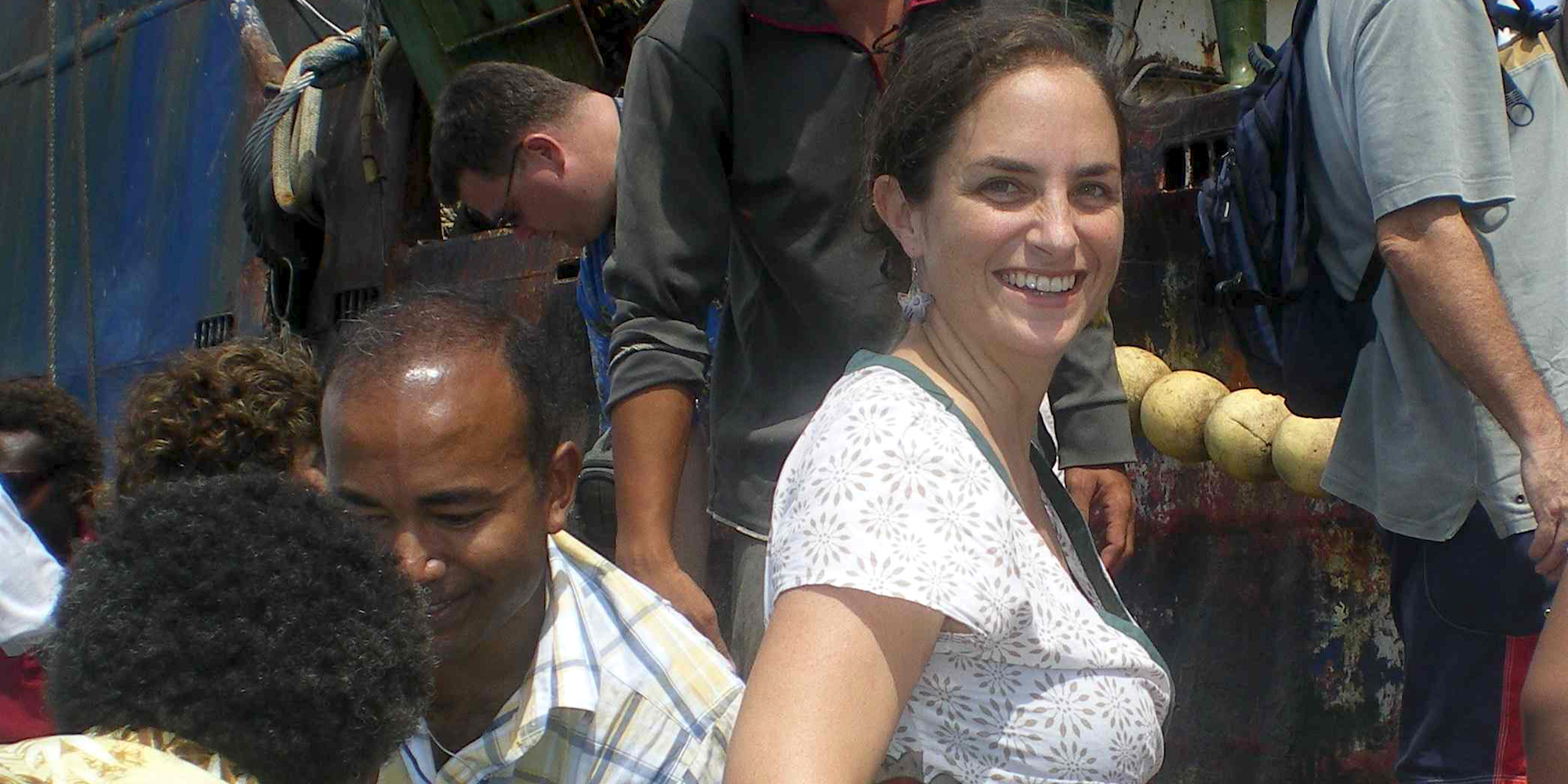Alumna Katy Le Roy finds a new perspective on the value of education.

Living and working in a tiny Pacific island nation with limited resources has given Katy Le Roy (LLB(Hons)1997) a new perspective on the value of education. "I have always valued the education I received at Melbourne Law School, but I now have a first- hand understanding of the critical importance of education for development," she says.
Ms Le Roy is Nauru's Parliamentary Counsel, but she says the role is much broader than the title would denote.
There is a dire shortage of lawyers on Nauru, so the role of Parliamentary Counsel is not confined to drafting legislation, but can also include appearing in court for the Speaker, providing legal advice to Cabinet, drafting reports for parliamentary committees and managing major projects. Ms Le Roy says the workload is unwieldy, but there is never a dull moment.
Nauru faces many challenges, including major health problems, a struggling economy and reliance on foreign aid and expatriate workers, but Ms Le Roy believes the key to meeting all of Nauru's challenges is education.
"If it were possible to put enough resources into ensuring that all Nauruan children received a quality primary and secondary education, and that students had the opportunity to pursue tertiary education, I think Nauru would be well on the way to being able to solve its own problems in all other areas."As a student at Melbourne Law School from 1993 to 1997.
Ms Le Roy was also a member of the Faculty for a number of years, working in the Centre for Comparative Constitutional Studies and teaching in the graduate program.
In 2003, she embarked on a PhD at Melbourne under the supervision of Professor Cheryl Saunders, writing on public participation in constitution- making in Fiji and the Solomon Islands and will submit her PhD in 2010.
It was her PhD research that led her to take on the role of United Nations Development Programme (UNDP) adviser to Nauru's Standing Committee on Constitutional Review (CRC).
In 2006, Ms Le Roy worked with the CRC to design an inclusive process of constitutional review, which has so far spanned four years and included extensive public consultation, an independent Commission, and the passage of proposed constitutional amendments through Parliament.
In February this year, Nauru held a referendum on some of the proposed amendments but the referendum failed.
However, Ms Le Roy says she was not disheartened by the referendum result. "In Australia we know it is notoriously difficult to pass a referendum. In Nauru the requirement is the approval of two thirds, which is an even higher bar. But throughout the constitutional review process, ordinary Nauruan citizens have been engaged; they have learned about their existing constitution and thought about new possibilities.
Many people now have a much better understanding of responsible government and how their system ought to work. That is a huge gain for Nauru, and that alone might result in improvements in the way politics operates, because politicians are going to have to account to a more informed public. Hopefully it will become a good example of the wonders of education."
Image: Katy Le Roy